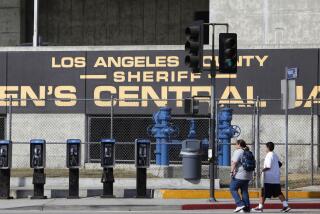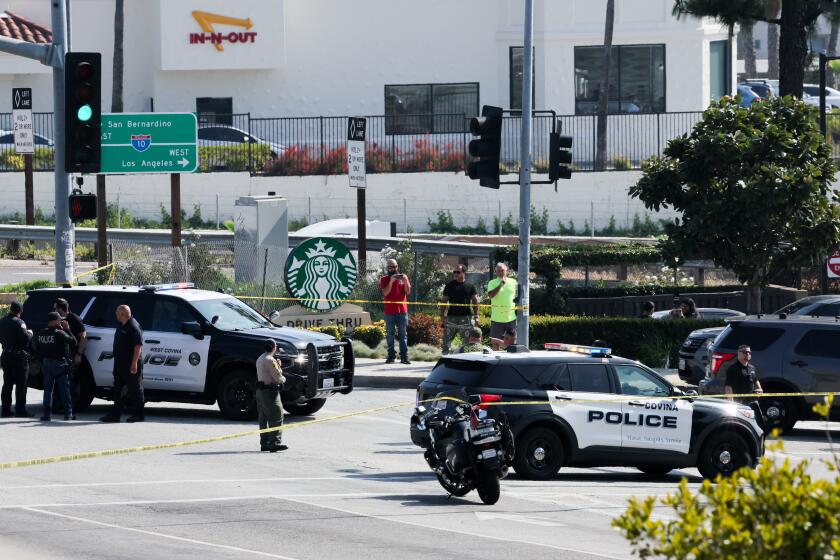Judge cancels hearing on serial rapist’s release to L.A. County
A Santa Clara County judge has canceled a Dec. 4 public hearing that had been scheduled on the release of a serial rapist to Los Angeles County, authorities said Tuesday.
The judge canceled the hearing after a landlord withdrew his support to allow Christopher Evans Hubbart to live in a home in an unincorporated part of Lake Los Angeles, the L.A. County district attorney’s office said.
The choice of the home had sparked complaints from local government officials and residents.
A state contractor is continuing to search for a new residence for Hubbart in L.A. County. When a new potential home is identified, Superior Court Judge Gilbert Brown will set a new hearing for public comments about that location.
In May, Brown ruled that Hubbart should be freed under tight supervision in Los Angeles County, where he lived briefly the last time he was released from prison in 1993. The L.A. County district attorney’s office was thwarted in its attempts to have Hubbart, 62, released in Santa Clara County, where he committed his most recent crimes.
Hubbart, who has spent nearly two decades in a state mental hospital, admitted sexually assaulting more than three dozen women in Southern California and the Bay Area between 1971 and 1982, according to the L.A. County district attorney’s office.
Hubbart’s attorney, Santa Clara County Deputy Public Defender Jeff Dunn, has said that Hubbart embraced intensive treatment for years while locked up in a state mental hospital and is not a public safety risk. He said Hubbart’s request for release was supported by his treating psychologist at Coalinga State Hospital and the hospital’s medical director.
Hubbart is among more than 500 offenders in California who have been confined under a law that allows authorities to commit sexually violent predators to state hospitals if they are deemed to have mental disorders that make them likely to re-offend, even if — like Hubbart — they have already served their entire prison sentences. He was one of the first to be committed when the law took effect in 1996.
Once Hubbart is conditionally freed, he will have to wear an electronic-monitoring ankle bracelet, report his movements and submit regularly to a polygraph and other tests.
ALSO:
L.A. County extends time for child welfare oversight commission
Crystal Cathedral closing for transformation into Catholic cathedral
Man’s claim of being kidnapped while walking dog a hoax, LAPD says
Twitter: @jackfleonard
More to Read
Start your day right
Sign up for Essential California for news, features and recommendations from the L.A. Times and beyond in your inbox six days a week.
You may occasionally receive promotional content from the Los Angeles Times.







